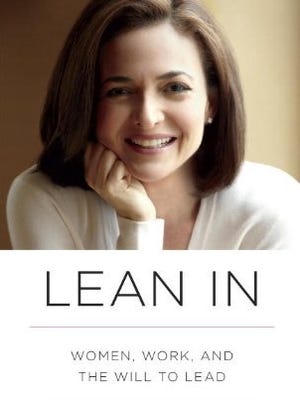Review roundup: 'Lean In,' by Sheryl Sandberg

If you were worried that books have lost their power to spark heated national debates, Sheryl Sandberg's Lean In should put that concern to rest: The current Facebook COO and former Google executive has written a "sort of feminist manifesto" (as she writes in the book) about women in the workplace, lamenting the dearth of females in leadership positions and urging women to be more assertive in their professional ambitions. "It is time for us to face the fact that our revolution has stalled," she writes. "A truly equal world would be one where women ran half our countries and men ran half our homes."
Few would argue with this ideal of gender equality. But in the weeks leading up to the publication of Lean In, many argued with Sandberg's ideas on how to attain that equality, some of which she had already spelled out in her popular TED talk and the commencement speech she delivered at Barnard College in 2011. Speaking to early criticism of the book, Jodi Kantor of the New York Times suggested that Sandberg "places too much of the onus on women who are already struggling to fulfill impossible demands, and too little on government and employers to provide better child care, more flexible jobs and other concrete gains." Deanna Zandt wrote in Forbes: "I'm all for assertiveness training…. But without simultaneously taking on the structures that keep those norms in place, women are…helping to reproduce [them]."
Others raised the question of whether Sandberg—whose net worth numbers in the hundreds of millions and who Forbes ranked the tenth most powerful woman in the world—is in a position to dole out career advice to women struggling with the day-to-day realities of work and family. USA Today's Joanne Bamberger called Lean In "the latest salvo in the war on moms" and compared Sandberg to Yahoo! CEO Marissa Mayer, who recently banned working from home. "The message coming from these C-suite moms is less about empowerment…than it is about guilt," Bamberger wrote. "Sandberg's argument that equality in the workplace just requires women to pull themselves up by the Louboutin straps…is just as damaging as Mayer's office-only work proclamation. Both these approaches are leaving a bad taste in the mouths of many working mothers who don't have the income or family luxuries of these uber-women."
But now that Lean In has hit shelves and official reviews are out, how does the critical response compare with the prepublication melee?
Michelle Goldberg of The Daily Beast describes the early attacks on Lean In as "largely divorced from anything Sandberg has actually written or said" and praises Sandberg for "doing all she can" to push for gender equality in the workplace. Maureen Corrigan of NPR complains about the "ironed-out quality" of the book, saying, "If Mary Wollstonecrafthad written this tepidly, the first women's movement might have wilted before it ever took root," but balances that by saying, "It's great to have a woman with such a platform speak up about sexism." Meeta Agrawal of Entertainment Weekly calls the book "the most cogent piece of writing I've encountered that speaks to the internal and institutional forces that can trip up an ambitious woman, whether she has a baby on board or not."
Susan Faludi, writing for CNN, was less effusive, suggesting that Sandberg has glossed over the struggles of single mothers: "Most single mothers operate under extreme social and economic impediments…that add up to a massive inequality in American society," she writes. "And this isn't because of a lack of lean-in self-confidence…. The flip side of the view that women can do anything if they 'just jump' is the assumption that that anyone who doesn't should remain invisible. That message is the precise opposite of feminism."
Others have endorsed Sandberg as a new voice in contemporary feminism. The New York Times' Janet Maslin likened Lean In to Betty Friedan's groundbreaking The Feminine Mystique, writing that the book "will open the eyes of women who grew up thinking that feminism was ancient history." Even feminist scholar Anne-Marie Slaughter--who kicked up controversy of her own with an essay in The Atlantic, "Why Women Still Can't Have It All," and with whom Sandberg has had a longstanding feud--struck an overall positive tone in her review in the New York Times Book Review, calling Sandberg a "feminist champion."
--